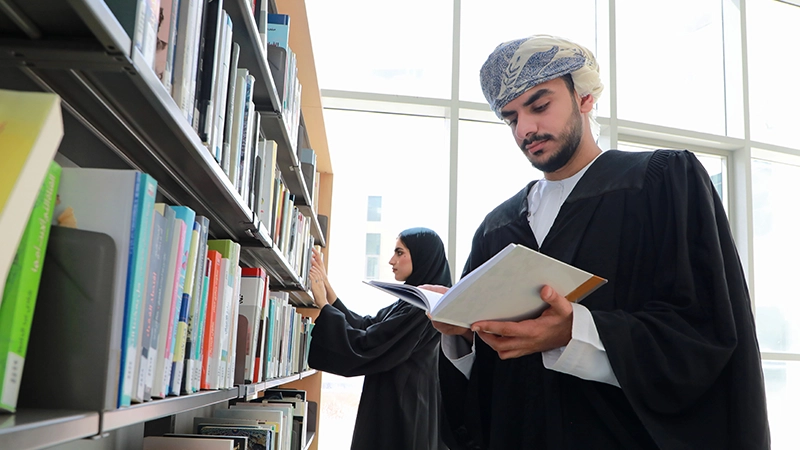Sohar University FL , Bachelor Program Fees | Admission
Scope of the Law Programs at Sohar University
Welcome to the Faculty of Law, where we are dedicated to delivering top-quality education. Our diverse teaching methods prepare students for successful careers in their respective fields, with a strong emphasis on meeting market demands and adhering to international standards in legal practice.
At our faculty, students are encouraged to take ownership of their learning journey. We provide both on-campus and off-campus training, along with practical experiences such as participation in Moot Court, which simulates real courtroom settings. Internship opportunities in both public and private law offices further enrich our students’ experiences. We offer two distinguished programs: Bachelor in Law and Master in Public Law. Our curriculum is designed to enhance problem-solving, critical thinking, creativity, and communication skills, empowering graduates to assume leadership roles in their professions and communities.
As we continuously strive for excellence, our faculty is actively developing its programs to meet market needs and provide opportunities for advanced study and research, benefiting Oman’s legal system and beyond.
In line with our commitment to academic excellence, the Faculty of Law promotes equality of opportunity and embraces an inclusive approach. We provide support and encouragement to all its students, fostering a welcoming environment for everyone to thrive.
Join us in shaping the future of legal education and practice.

Why Choose SU for Your legal Education?
- Faculty and administrative staff with experience and competence.
- Supportive and attractive learning environment.
- Enhancing the legal competence and confidence of its students through international and national participation.
- Geographic location and stimulating campus environment.
- Partnerships and collaboration between the college and colleges within and outside the Sultanate of Oman.
- Continuous development of the programs offered by the college.
- A motivating and supportive environment for legal research.
- Emphasis on the practical aspect in the programs offered by the college.

 العربية
العربية




